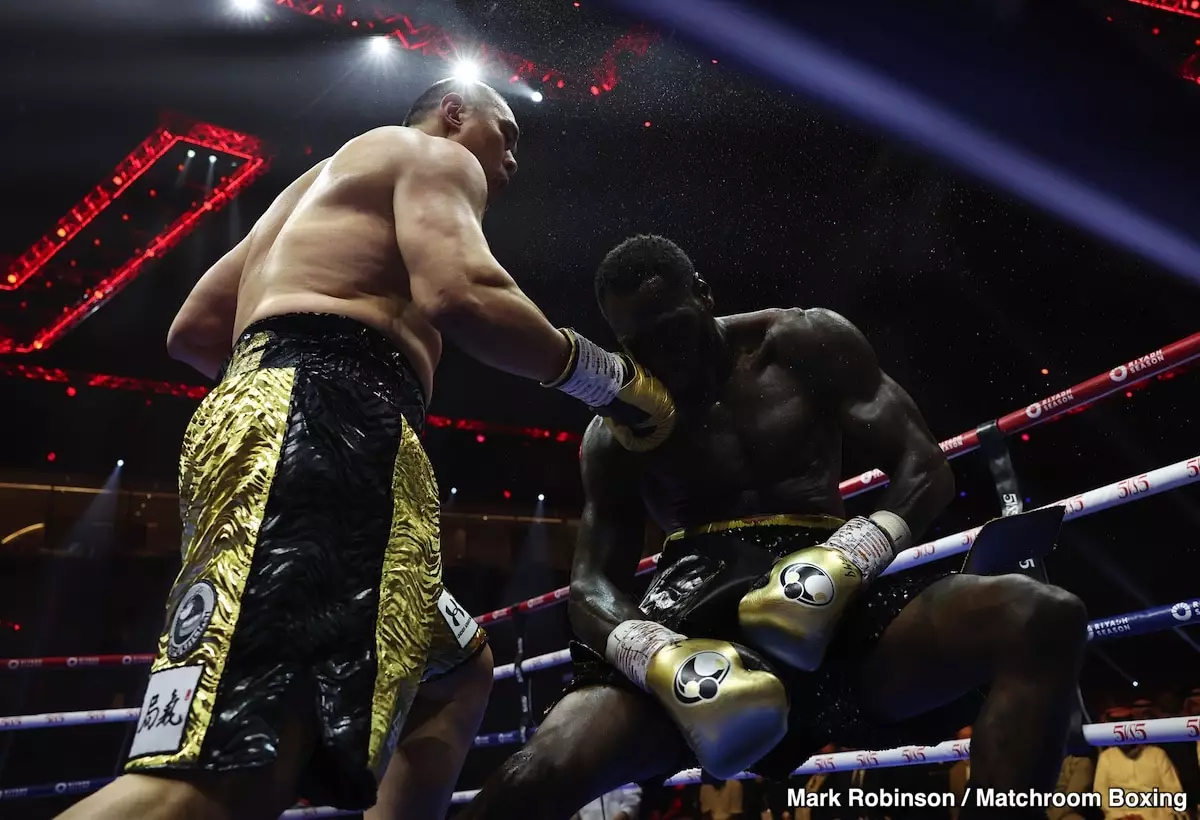In the world of heavyweight boxing, the relationship between a fighter and their trainer is pivotal for success. Deontay Wilder, once hailed as a ferocious champion, seems to have undergone a stark transformation since Malik Scott took on the role of his trainer in 2021. From being a fearsome “lion” known for his knockout power, Wilder’s recent performances have evoked comments from peers like Derek Chisora, who describes him as a “sissy.” This drastic change raises questions about Scott’s coaching methods and Wilder’s readiness to revert to his former self.
Chisora’s criticism resonates with what many boxing fans and analysts have observed: Wilder’s fighting style has significantly dulled since Scott’s arrival. With a disappointing record of 1-2 in their collaboration, including an uninspiring loss against Joseph Parker, the boxer’s once-revered knockout ability seems suppressed. This shift begs the inquiry into whether Wilder’s potential is squandered under Scott’s tutelage or if there are deeper, personal reasons for this decline.
One of the most alarming aspects of Wilder’s recent bouts has been his submissive approach in the ring. In his fight against Joseph Parker, for example, fans witnessed a version of Wilder that appeared reluctant to engage. His reserved style contrasted sharply with the explosive nature that had once seen him claim the WBC heavyweight title. Chisora expressed bewilderment, pointing out that Wilder should have been fighting aggressively, particularly against a fighter like Parker, who had vulnerabilities that Wilder could have exploited.
Instead, Wilder appeared hesitant, circling the ring and failing to throw significant punches, with his right hand – a signature weapon – largely absent. This timid performance against an opponent with a reputation for being mediocre raised eyebrows in the boxing community, instilling concerns regarding the effectiveness of Scott’s coaching and Wilder’s mental fortitude.
Given Wilder’s considerable earnings, it may seem that he can afford to endure such lackluster performances. However, the question remains: how long can a fighter like him—wealthy yet underperforming—continue to justify his circumstances when his passion and honor as a boxer are undeniably compromised? Chisora’s comments highlight a critical dichotomy: while Wilder’s financial safety nets him from immediate fallout, the long-term ramifications of failing to capitalize on his boxing prowess could tarnish his legacy.
Many might argue that Wilder’s wealth provides a cushion that alleviates the pressure of fighting, but it may also be a double-edged sword. The motivation to pursue relentless training and dedication can dwindle when financial stability ensures a comfortable life irrespective of athletic accomplishments. This disengagement raises another layer of concern—has Wilder settled into complacency, and if so, can he find the hunger to reclaim his status in a fiercely competitive division?
Derek Chisora’s public exhortation for Wilder to part ways with Malik Scott is not merely a reactionary outburst; it is steeped in a desperate plea for Wilder to restore his fighting spirit. As Wilder approaches his 39th birthday, one must wonder whether there is still enough time for him to recapture the ferocity he once embodied. A change in his coaching team may not only revive his technique but also reinvigorate his mental resilience.
While a new trainer may not guarantee instant success, it could awaken the primal instincts that defined Wilder’s reign. Chisora’s analogy of a lion being transformed into a cat should serve as an alarm bell. Wilder’s fight intelligence and experience remain invaluable assets; however, their efficacy relies on the right environment and guidance.
It is crucial for Wilder to engage in self-reflection moving forward. If he remains with Malik Scott, he risks further entrenchment in mediocrity. Alternatively, taking a risk on a new trainer with a robust record could rejuvenate his confidence and style. Whether or not he feels capable of making such a change will be pivotal – embracing evolution in mentorship could very well dictate the latter phases of his career.
Ultimately, Wilder’s boxing legacy is at a crossroads. The narrative of a once-dominant champion losing his way can either be a cautionary tale or a rallying call for redemption. The choice lies with Deontay Wilder. Whether he emerges as a lion once more or remains a shadow of his former self depends on the resoluteness with which he tackles the trials ahead.

